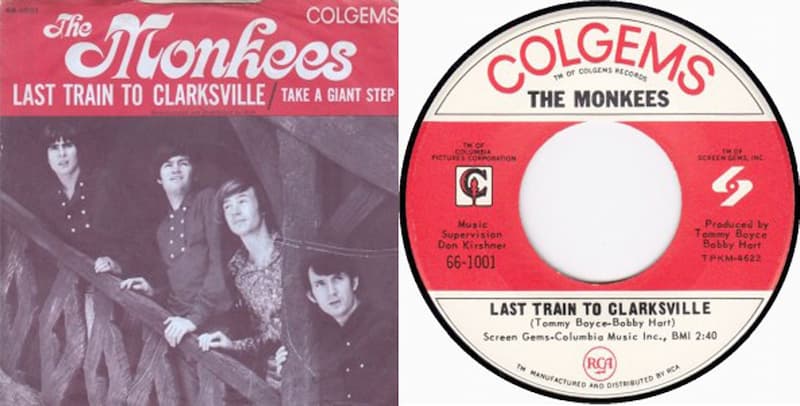
In the summer of 1966, pop music was on the brink of a seismic shift that would captivate a nation, especially its youth. Enter The Monkees, a prefabricated band destined to become a cultural phenomenon. But behind their bubbly surface lay a song with a covert message that would resonate deeply.
The birth of The Monkees was itself an event: a casting call announced in September 1965 in The Hollywood Reporter and Daily Variety, seeking “Folk & Roll Musicians-Singers for acting roles in new TV series.” Over 425 hopefuls submitted themselves, but only four—Michael Nesmith, Peter Tork, Micky Dolenz, and the already targeted lead singer Davy Jones—rose to the challenge.
Music for this newly formed group quickly followed, with songwriters Tommy Boyce and Bobby Hart penning original tracks. Among these was the iconic “Last Train to Clarksville,” a seemingly bright pop tune that hid a provocative secret message about the Vietnam War.
Bobby Hart revealed the story behind the name: “We were just looking for a name that sounded good… There’s a little town in Northern Arizona called Clarksdale, but we thought Clarksville sounded even better. We didn’t know there was an Air Force base near Clarksville, Tennessee, which would have fit the story perfectly. We couldn’t be too direct with The Monkees—we couldn’t really make a protest song out of it, so we kind of snuck it in.”
When “Last Train to Clarksville” was released on August 16, 1966, it rode the wave of the new Monkees TV show premiere on NBC just weeks later on September 12. The show’s explosive popularity, combined with the song’s catchy rhythm and secretive narrative, rocketed the record to the top of the Billboard charts, where it held the coveted #1 spot for the week of November 5, 1966, dethroning “96 Tears” by ? and the Mysterians.
The song’s lyrics paint an urgent, emotional scene: a young man urging a loved one to catch the last train to meet him before he leaves—possibly for an uncertain war. The haunting line, “And I don’t know if I’m ever comin’ home,” haunted listeners and added a layer of poignant reality amid the upbeat melody.
As Bobby Hart himself put it, the song was a clever disguise for anti-war sentiment that slipped under the radar in a time when direct protest was risky for mass-market artists. It captured the anxiety and heartbreak of a generation grappling with the prospect of loss and separation.
The Monkees’ fusion of television stardom and pop music innovation made “Last Train to Clarksville” not just a song but a cultural flashpoint—a secret anthem for turbulent times, masked in the innocent guise of 1960s pop. It remains a chilling reminder of how art can veil profound truths, catching the ears and hearts of millions in just a few minutes on the radio.